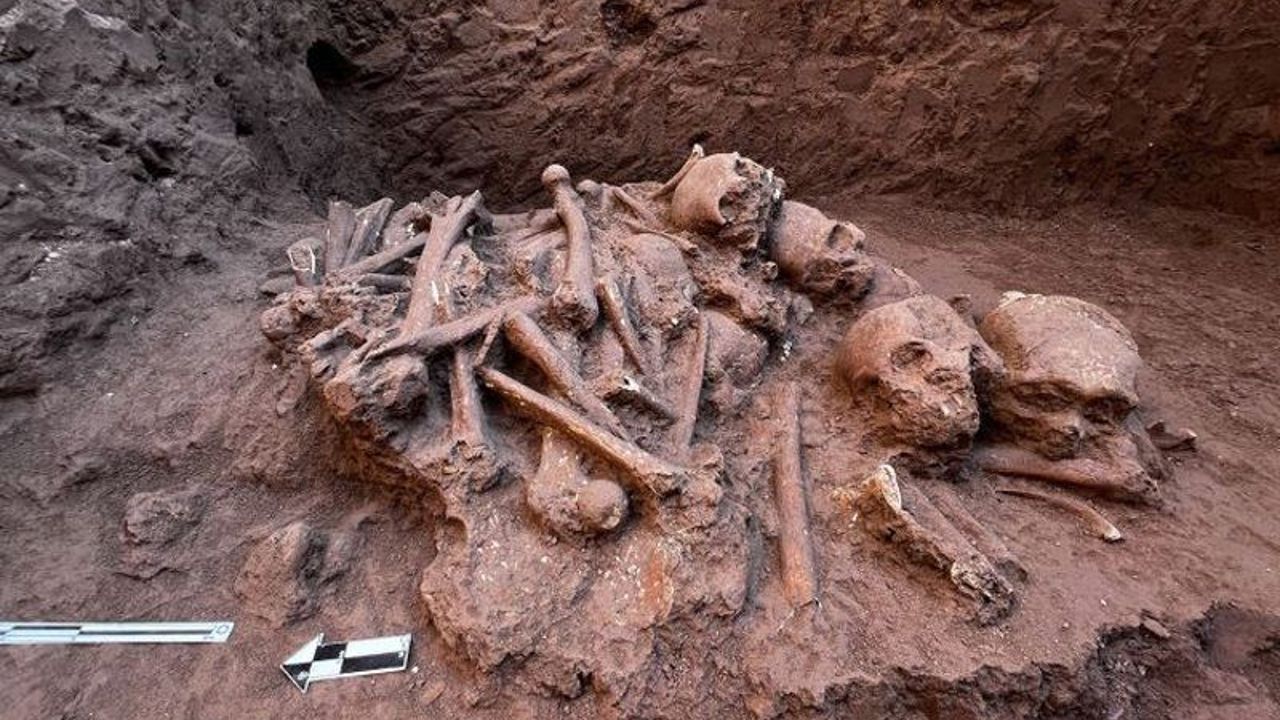Mexican archaeologists uncover traces of ancient human sacrifices
Archaeologists from the National Institute of Anthropology and History in Mexico have uncovered human sacrifices from 500-800 A.D. in the town of Pozo de Ibarra

The discovery of bones during the construction of a sewer network led archaeologists from the National Institute of Anthropology and History (INAH) to excavate a burial site where they also found a deposit of anatomically unrelated human bones and skulls in the town of Pozo de Ibarra, Mexico.
The excavations revealed femur, tibia and ulna bones, as well as skulls that had been deliberately placed or stacked on top of each other.
Some of at least seven complete skulls belonging to male individuals of different ages show evidence of skull modification, a cultural practice among Mesoamerican cultures that involved changing the shape of the skull for aesthetic purposes and possibly as a form of social distinction.
The way the skeletons were arranged indicates the presence of certain ceremonial practices related to death in the region in pre-Hispanic times, archeology news channel Heritage Daily reported.
The discovery is probably related to the Amapa cultural phase (500-800 A.D.) when the tomb also contained ceramic vessels and anthropomorphic figurines.
Source: Newsroom






